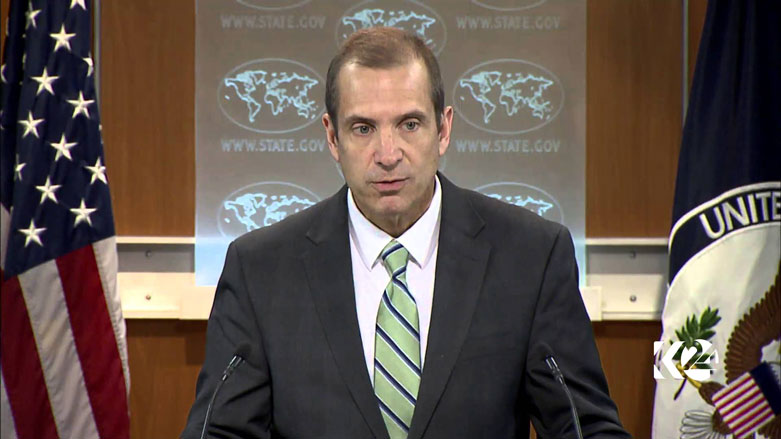US: No guarantees that loans to Iraq will benefit Kurds

On Tuesday, a State Department spokesman acknowledged that little assurance existed the Kurdistan Region would receive any part of the huge loan to the Iraqi government—up to one billion dollars—that Washington has pledged to guarantee.
If that is so, how is the Kurdistan Regional Government (KRG) expected to deal with its economic problems, which are not less than Baghdad’s? Indeed, the KRG’s needs are even greater, as the Kurdistan Region, with a population less than 20% that of the rest of Iraq, hosts two-thirds of the country’s displaced persons and refugees created by the conflict with the Islamic State.
Speaking on background, two senior State Department officials explained the US could not guarantee any loans to the KRG, as it is doing with Iraq because such a service can only be provided to a national government.
So Kurdistan24 asked, “Isn’t that a good reason for the Kurds to establish their own independent state?”
The reaction was nervous laughter—but nothing more! The US State Department had just articulated one important reason why the Kurdistan Region needs independence.
Iraqi Prime Minister Haidar al-Abadi is much friendlier to the Kurdistan Region than former Prime Minister Nouri al-Maliki, whom the US helped oust in 2014. Nonetheless, Abadi presides over a sectarian regime that neglects the 40% of the Iraqi population that is not Shiite.
Last Thursday, the US and Iraq signed a loan guarantee agreement worth up to one billion dollars.
But a confusion developed over that point, and the next day, a State Department spokesman clarified the US was not lending Iraq that money. Rather, the US was guaranteeing if Baghdad defaulted on the loan, Washington would be responsible for repaying it.
Such an arrangement reduces the cost of borrowing money. “It makes it more affordable for the Government of Iraq to be able to borrow money from international capital markets,” John Kirby explained, as he responded to a question from Kurdistan24.
Kurdistan24 then asked whether any understanding existed to earmark a portion of the money Iraq will borrow on the basis of the US loan guarantee for the Kurdistan Region. Otherwise, a substantial risk existed that the Kurdish population would not receive its fair share.
Kirby replied, “The Government of Iraq did approve a budget that would provide for the KRG to receive federal revenues consistent with Article 121 of the Iraqi constitution and requirements in the budget law.” Therefore, he continued, “proceeds from the United States guaranteed loan” will benefit “all of Iraq, because of their own budgeting law.”
However, in reality, there is no agreement between Erbil and Baghdad over the budget. The Iraqi National Assembly did pass a budget law on December 7, but as it did so, it changed key language, with the result that Erbil would receive less revenue through an agreement with Baghdad than it would if it exported oil on its own with no agreement.
Thus, Iraq’s Deputy Finance Minister Fazil Nabi—the highest-ranking Finance Ministry official, as the National Assembly ousted the Finance Minister in September and he has not been replaced—explained that the KRG would get 800 billion Iraqi dinars monthly, by selling its own oil.
However, if the KRG abided by the agreement with Baghdad, it would receive only 500-550 billion dinars per month, Nabi stated. Therefore, he expected the deal to fail.
When asked about this on Tuesday, State Department spokesman Mark Toner characterized the problem as “an internal matter” for Erbil and Baghdad to discuss. “We hope,” he stated, “this arrangement would benefit and meet the needs of all Iraqis, including those in the Kurdistan Region.”
However, hope is not a policy, and no responsible leader makes plans on the basis of hopes.
Editing by Delovan Barwari
(Baxtiyar Goran contributed to this report from Erbil)
